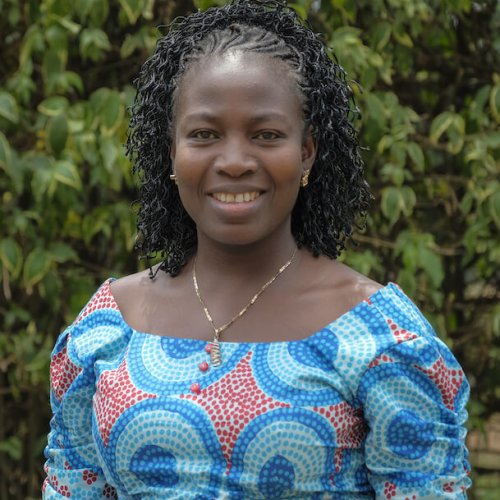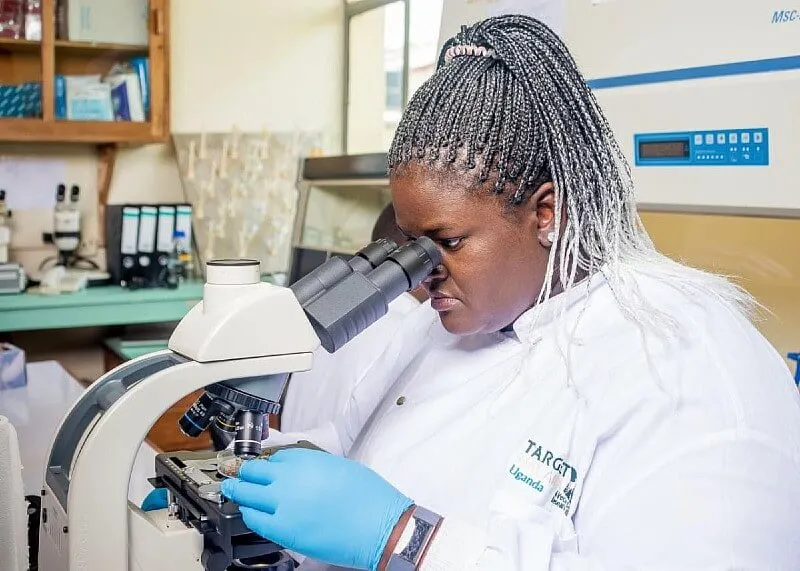Targeting Malaria: How scientists Dr. Lea Pare Toe and Krystal Birungi are playing their part to help combat the disease

Despite persistent challenges in the fight against malaria, organisations such as Target Malaria remain steadfastly committed to combating the deadly disease by harnessing scientific innovation and invaluable contributions and work by African women scientists such as Dr. Lea Pare Toe and Krystal Birungi.
With a recent UNESCO report revealing that only 35% of STEM students in higher education globally are women, spotlighting their work, should not only encourage more young African girls to pursue careers in science, but it is also imperative.
And Target Malaria’s mission extends beyond scientific innovation; it embodies a commitment to co-development, excellence, and accountability, recognising the invaluable contributions of African women in the fight against malaria.
It is also pioneering the use of gene drive, a natural genetic mechanism, to spread a genetic modification in malaria mosquitoes that biases the rate of inheritance and affects their ability to reproduce.
This innovative approach holds the promise of being a sustainable and cost-effective method to reduce the population of malaria mosquitoes and ultimately halt malaria transmission.
Target Malaria also ensures that African voices and expertise play a central role in the development and evaluation of these technologies.
Dr. Lea Pare Toe

Underscoring the urgency and importance of including more women in science, Dr. Lea Pare Toe states:
“Research shows that women are typically given smaller research grants, face shorter and less well-paid careers, and are underrepresented in high-profile journals and leadership positions.”
Holder of a PhD in Anthropology and Sociology from the University of Aix Marseille in France, Dr. Pare Toe is the Stakeholder Engagement Lead for Target Malaria Burkina Faso, which is part of the Target Malaria consortium based at the Institut de Recherches en Sciences de la Santé (IRSS) based in the city of Bobo-Dioulasso.
She is one of Africa’s forerunners in social sciences interested in genetic technologies from the point of view of local communities and stakeholders. Her Doctoral research has enabled her to specialise in the socio-anthropological analysis of health problems in Africa, specifically in vector-borne diseases and her work has focussed on research in malaria control and looking at the perceptions, expectations and constraints of populations in relation to the use and allocation of research results by the beneficiary populations.
She also ardently supports bringing women and girls into science, but is also acutely aware of the challenges young African girls face in this field due to entrenched gender stereotypes, and the lack of role models.
She states: “The fields of science and research need more women, and this is particularly true in Africa, where there is so much young talent.”
Explaining what her work entails, she says:
“You cannot lead community-driven research in a specific scientific expertise or country if you do not have a level of knowledge in that field. My role is first and foremost community-driven, involving all community members in the science, research and rollout phases. Fields like synthetic biology offer promising avenues for innovation, with the potential to revolutionise how we combat vector-borne diseases, in a sustainable way.”
“A big component in this is community education and knowledge sharing and in doing so, I hope to inspire more young women to join science careers,” she adds.
Krystal Birungi

According to the World Health Organisation (WHO), in 2022 Africa was home to 94% of malaria cases (233 million) and 95% (580 000) of malaria deaths. Children under five accounted for about 80% of all malaria deaths.
And with such sobering statistics, Birungi’s passion to help reduce the burden of Malaria in not only her home country of Uganda, but Africa as a whole, is therefore palpable.
A holder of a double major in Zoology and Botany from Makerere University, Birungi is the Field Entomology Coordinator at Target Malaria Uganda, responsible for overseeing all aspects of entomological fieldwork done in the Uganda Virus Research Institute entomology department. As an entomologist, her field of work helps to better understand malaria-carrying mosquitos to help find scientific solutions that can help eliminate the disease for good.
“I grew up in Uganda, where I saw and experienced first-hand the devastating impact of malaria. As an adult living in a country with one of the highest global malaria burdens, I have dedicated my career to finding solutions to fight this deadly disease,” she says.
Growing resistance to available interventions, such as drugs and insecticides, are threatening efforts to fight the disease. As climate change progresses, millions are also now facing a higher likelihood of being exposed to malaria. The recent uptick in incidence of other vector-borne diseases — such as dengue — further underscores the urgent need for innovative approaches to address these converging threats.
Through collaborative efforts and innovative approaches, such as gene drive technologies, Target Malaria has the potential to make a transformative impact.
“Our teams across Africa, Europe, and North America are forging a path towards a malaria-free Africa, where every child has the opportunity to thrive,” explains Birungi who
represented the Global Fund Advocates Network (GFAN) at the recent Malaria Ministerial Conference in Cameroon, as an observer, advocating for decisive action against malaria.
The recent commitment taken by African Ministers of Health in Yaoundé to end malaria deaths serves as a poignant example for the UN Pact for the Future.
She poignantly reflects: “There are still communities in Africa who discuss how many children they should have, in case of losing some to malaria…I want to help build a world where my children do not have to make that decision.”









